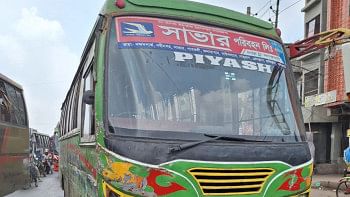Help factory workers facing job risk

Although the country's economy has shown some positive gains in terms of export growth in recent times, the situation in other aspects, such as unemployment, remains concerning. The job uncertainty faced by nearly one lakh employees of factories and enterprises struggling to restart operations after the political changeover on August 5 last year adds to these worries. According to a Prothom Alo report, 95 factories in Gazipur, Savar, Narayanganj and Narsingdi have permanently shut down over the past seven months, while several others have temporarily ceased operations, resulting in 62,000 job losses so far.
Many of these factories, including those belonging to Beximco, Gazi and Bengal groups—whose owners were closely associated with the fallen Awami League regime—came under attack during and after the July mass uprising. These factories suffered heavy financial losses due to arson, vandalism, and looting. Subsequently, many failed to secure bank loans needed to resume operations. Some of the factories have substantial defaulted loans and are struggling to reschedule and repay these debts, with a number of owners either in jail or absconding fearing legal consequences for their past activities. Although the interim government has arranged to pay the arrears and service benefits of laid-off workers from Beximco, similar arrangements have not yet been made for workers of other closed factories. However, as we have previously noted in this column, paying workers' dues alone is not enough to address this crisis as it has broader economic repercussions.
The authorities, therefore, must step in and take all necessary measures to ensure employment for the factory workers and officials who are either at risk of being laid off or have already lost their jobs. A clear roadmap is needed to mitigate the losses faced by employees, creditors, and suppliers of these struggling businesses. A case-by-case assessment will be needed to restructure financial books, where possible, to facilitate factory operations. Even temporary nationalisation of some of the bigger enterprises, or a public-private partnership (PPP) initiative, could be considered. Whatever actions the government takes must happen urgently, as the jobs of thousands are at stake, along with valuable assets and machinery that risk going to waste. The employees of these factories must not bear the brunt of their owners' misdeeds and the instability caused by the uprising.

 For all latest news, follow The Daily Star's Google News channel.
For all latest news, follow The Daily Star's Google News channel. 



Comments